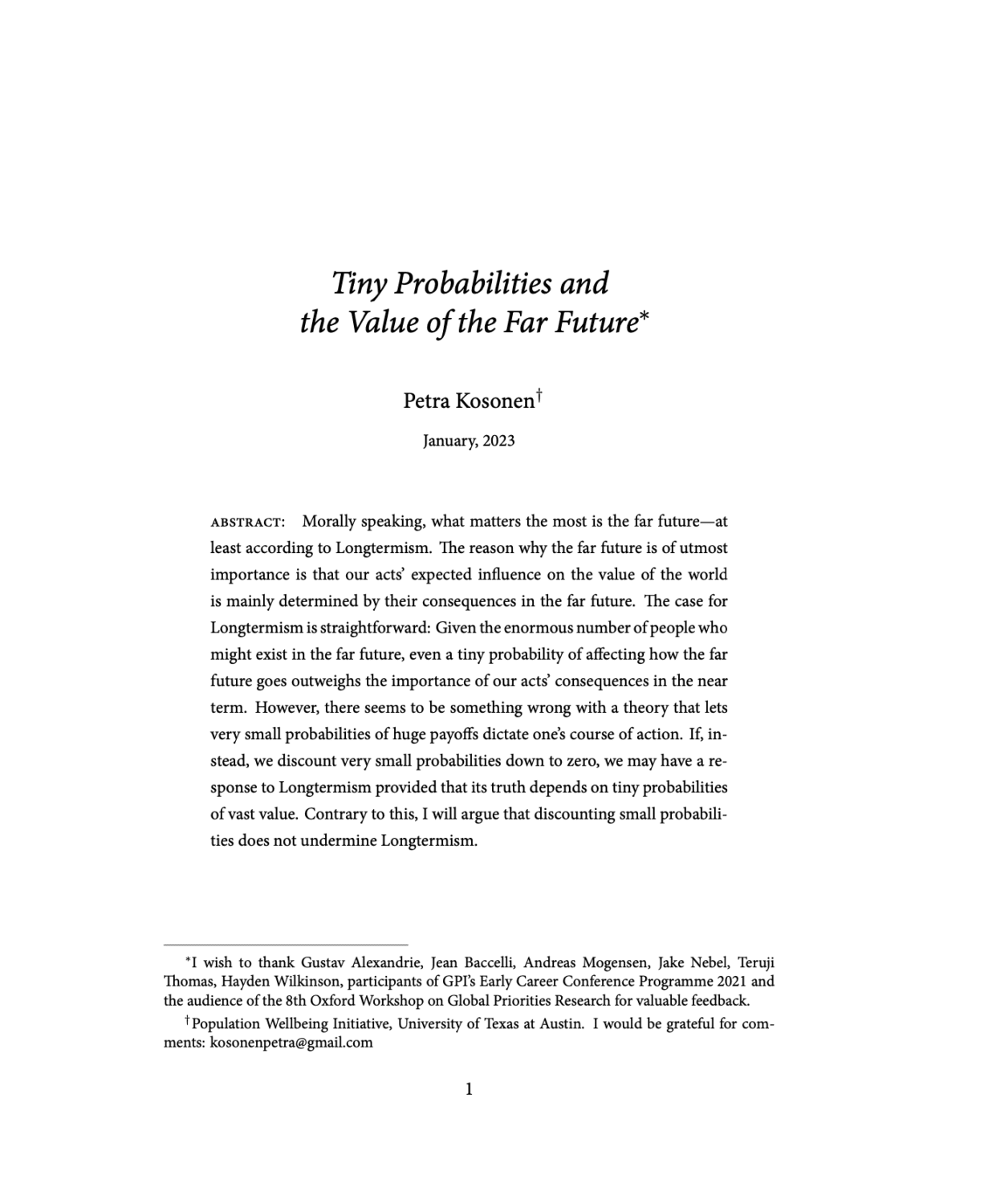Tiny probabilities and the value of the far future
Petra Kosonen (Population Wellbeing Initiative, University of Texas at Austin)
GPI Working Paper No. 1-2023
Morally speaking, what matters the most is the far future - at least according to Longtermism. The reason why the far future is of utmost importance is that our acts' expected influence on the value of the world is mainly determined by their consequences in the far future. The case for Longtermism is straightforward: Given the enormous number of people who might exist in the far future, even a tiny probability of affecting how the far future goes outweighs the importance of our acts' consequences in the near term. However, there seems to be something wrong with a theory that lets very small probabilities of huge payoffs dictate one's own course of action. If, instead, we discount very small probabilities to zero, we may have a response to Longtermism provided that its truth depends on tiny probabilities of vast value. Contrary to this, I will argue that discounting small probabilities does not undermine Longtermism.
Other working papers
Exceeding expectations: stochastic dominance as a general decision theory – Christian Tarsney (Global Priorities Institute, Oxford University)
The principle that rational agents should maximize expected utility or choiceworthiness is intuitively plausible in many ordinary cases of decision-making under uncertainty. But it is less plausible in cases of extreme, low-probability risk (like Pascal’s Mugging), and intolerably paradoxical in cases like the St. Petersburg and Pasadena games. In this paper I show that, under certain conditions, stochastic dominance reasoning can capture most of the plausible implications of expectational reasoning while avoiding most of its pitfalls…
Respect for others’ risk attitudes and the long-run future – Andreas Mogensen (Global Priorities Institute, University of Oxford)
When our choice affects some other person and the outcome is unknown, it has been argued that we should defer to their risk attitude, if known, or else default to use of a risk avoidant risk function. This, in turn, has been claimed to require the use of a risk avoidant risk function when making decisions that primarily affect future people, and to decrease the desirability of efforts to prevent human extinction, owing to the significant risks associated with continued human survival. …
How to resist the Fading Qualia Argument – Andreas Mogensen (Global Priorities Institute, University of Oxford)
The Fading Qualia Argument is perhaps the strongest argument supporting the view that in order for a system to be conscious, it does not need to be made of anything in particular, so long as its internal parts have the right causal relations to each other and to the system’s inputs and outputs. I show how the argument can be resisted given two key assumptions: that consciousness is associated with vagueness at its boundaries and that conscious neural activity has a particular kind of holistic structure. …

